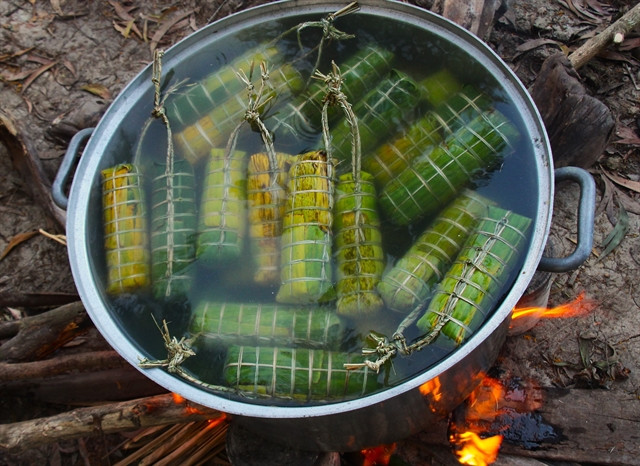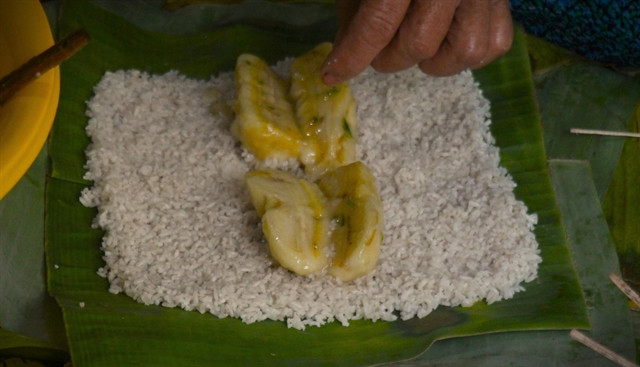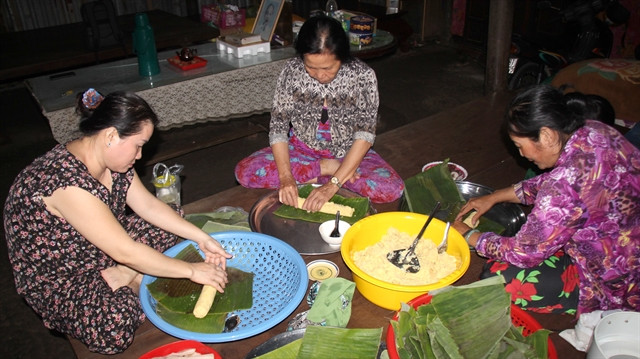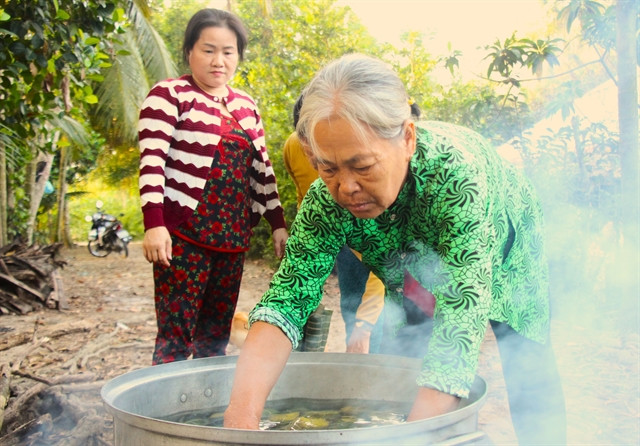Like bánh chưng (square glutinous rice cake), bánh tét has become a vital ceremonial dish and a cultural symbol of people in the Southern region of Việt Nam whenever Tết comes. The most delicious and largest cakes are always present on the offering trays to their ancestors on New Year's Eve and used to treat guests during the three days of Tết.
 |
| The cake is cooked continuously for 6-8 hours over high heat. VNA/VNS Photos Nguyễn Hằng |
The cake is made from whole grain white glutinous rice, and the filling is made from mung beans and lard or ripe bananas. The traditional bánh tét is wrapped in fresh banana leaves and tightly tied with string. After cooking, the cake is cut into slices, revealing the delicate white glutinous rice surrounding the golden filling.
 |
| The cake is primarily made of white glutinous rice, with filling of mung beans and lard, or ripe bananas. |
The dish offers a delightful combination of flavours. The glutinous rice and the filling blend harmoniously, creating a subtle sweetness. When cooked to perfection, bánh tét has a soft and slightly sticky texture that is incredibly satisfying.
Bánh tét holds great cultural significance in Hậu Giang and is an integral part of special occasions and celebrations. During the Lunar New Year, families come together to make bánh tét, strengthening the bonds between generations and preserving the traditions of the past. It is also commonly offered as a gift to friends and relatives, symbolising good luck and best wishes for the year ahead.
 |
| Women in Hậu Giang are seen busy making bánh tét ahead of Tết. |
Bánh tét was also among 200 sticky rice cakes prepared during a special event at the Việt Nam-Hậu Giang International Rice Festival 2023 that opened in the Mekong Delta province on December 12. On the occasion, the Vietnam Record Association granted a record certificate to the provincial Department of Culture and Sports in recognition of the event for processing and presenting the biggest number of cakes made from rice and sticky rice in Việt Nam. – VNS
 |
| The experience of making bánh tét has been passed down through the generations. |